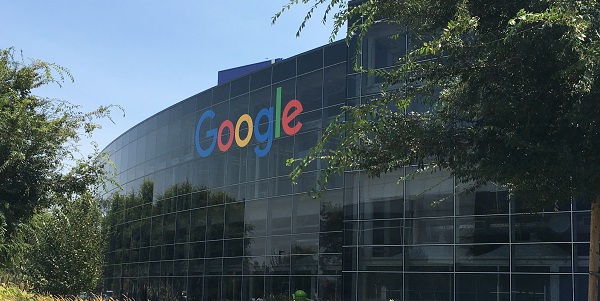Google disbands AI advisory panel
April 9, 2019 | Expert Insights

Concerns over the presence of the defence industry and conservative voices on an AI ethics board results in Google disbanding the panel.
Background
Artificial intelligence is the development of computer systems that can perform tasks that can otherwise be performed only through human intelligence. This includes, but is not limited to, visual perception, speech recognition, decision-making, and translation between languages. Presently, most of the technology focused on Artificial Intelligence is properly known as narrow AI or weak AI. Researchers and experts now believe that humanity is now on the path to creating General Artificial Intelligence (AGI), which would be able to outperform humans in nearly every single cognitive task.
Google LLC. is an American multinational technology company that was founded in 1998 by Larry Page and Sergey Brin while they were PhD students at Stanford University, California. One of Google’s main investments is in the field of artificial intelligence. For example, one of the most successful programmes that have been created with regards to AI is Google’s AlphaGo. Go is a strategic board game that is considered to be even more difficult than Chess. In 2017, Google’s DeepMind achieved yet another landmark in the field. The team has created a program that has for the first time taught itself from scratch how to defeat human players in the complex Chinese game of Go. In March 2018 it was revealed that the U.S. Department of Defence was using advanced artificial intelligence technology from Google to analyse drone footage, resulting in an outcry by Google’s employees over its AI’s use in war.
Analysis
Google recently confirmed that had disbanded the Advanced Technology External Advisory Council (ATEAC), an artificial intelligence ethics advisory panel, which had lasted only for a week. A group of Google employees had embarked on a campaign that sought to remove the president of conservative think-tank Heritage Foundation, Kay Coles James, from the panel. The panel had also recently come under fire for the membership of a drone company executive on the advisory council and for the loss of another member through resignation. Google said that they were “ending the council and going back to the drawing board.
A petition, led by Google employees, accused the president of the Heritage Foundation of being “vocally anti-trans, anti-LGBTQ and anti-immigrant.” The group called Googlers against Transphobia said Google was “making clear that its version of ‘ethics’ values proximity to power” over other considerations. The petition had garnered over 2,300 signatures.
Google, as the world’s largest gleaner of public data through its search requests and numerous indexed web-pages, has a special responsibility in ensuring the safety of the human race from AI. Recent events surrounding tech companies has brought renewed attention to the practices of these companies, especially in relation to privacy and security. Some lawmakers have threatened to break up these technology behemoths over anti-trust concerns. Simultaneously, for Google, developing AI technology is of paramount importance in order to maintain its technical advantage over competitors such as Amazon, Apple, Facebook, IBM and Microsoft.
The evocation of anti-discriminatory rhetoric, in addition to other often-discussed ethical issues such as the use of AI in war, is evidence of the manner in which AI can influence the entirety of human life. It is clear to geo-strategic analysts that if the US doesn’t ensure its AI war system capabilities, other powers with less forceful ethical considerations will power through to gain an edge. America must develop its AI capabilities across the widest spectrum of humanity while remaining ethically cognisant of the issues that it throws up. Setting up such advisory panels is a vital positive step in grappling with ethical issues while educating the general public of the same. Google’s practice of selecting people from a plethora of ethical positions, including the conservative stance (regardless of how controversial it may be), is vital in securing the most holistic ethical positions. Involving academia, scholars on all sides of the aisle, the defence community (despite the ethical reservations it highlights), AI naysayers, among a host of others, will bring a variety of viewpoints which is important to a sector with as wide-reaching ramifications as AI. Making the group's deliberations public, while inviting public commentary will draw from as many stakeholders as possible.
Assessment
Our assessment is that while Google’s reservations over potential breaches of discrimination are somewhat justified in relation to AI, it is important to remain cognizant of the potentially wide-ranging impact the sector can have on life. Thus, we believe that it is important to bring in every ethical position, regardless of offence caused, in order to grapple with the issue in a morally responsible manner. We also believe that the conservative position and the defence position must be heard, regardless of Google’s political dispositions, due to the momentous impact the company has on our lives.
Image Courtesy: The Pancake of Heaven! [CC BY-SA 4.0 (https://creativecommons.org/licenses/by-sa/4.0)]








Comments